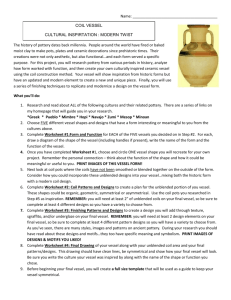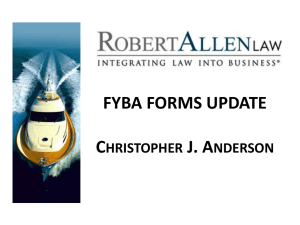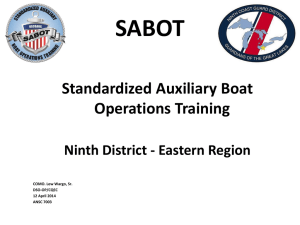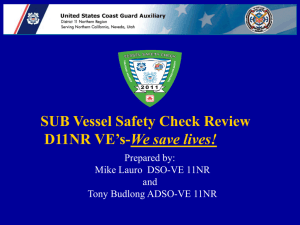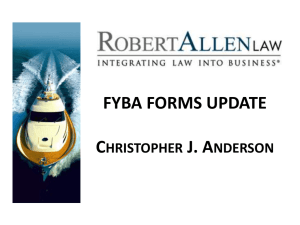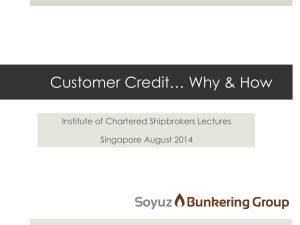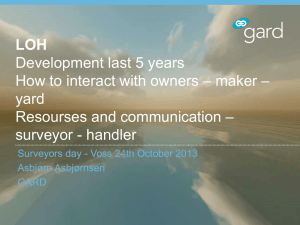PPT - Mrs.Wright`s Art Classes
advertisement
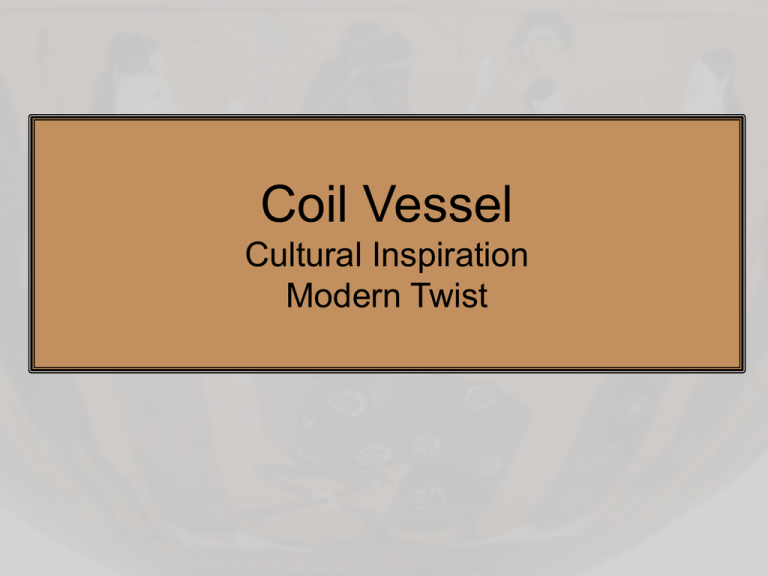
Coil Vessel Cultural Inspiration Modern Twist Historic Pottery • History of pottery dates back millennia • People around the world have fired or baked clay to make pots, plates and ceramic decorations since prehistoric times • Creations were not only aesthetic, but also functional… and each form served a specific purpose Task Research pottery from various periods in history, analyze how form worked with function, and then create your own culturally inspired ceramic vessel. Your vessel will have an updated and modern element to create a new and unique piece. Task You will use the hand building technique of coil with red terracotta clay. Some areas will be smooth, and others the coil design will remain unblended. The vessel will be finished by adding a pattern/design using texture, sgraffito, and underglaze. Cultures Research and read about ALL of the following cultures and their related pottery. There are links in your research and planning packet to guide you. - Greek - Pueblo - Mimbre - Hopi - Navajo - Zumi -Mesop - Minoan Choose FIVE different vessel shapes and designs that have a form interesting or meaningful to you from the cultures above. Worksheet #1 Form & Function For EACH of the FIVE vessels you decided on, draw a diagram of the shape of the vessel (including handles if present), write the name of the form, and the function of the vessel. Once you have completed Worksheet #1, choose and circle ONE of the vessel shapes you will recreate for your own project. Modern Day Coil Pots Look at coil pots where the coils have not been smoothed and blended together on the outside of the form. Consider how you could incorporate these unsmoothed designs into your vessel… mixing both the historic form with a modern coil design. Worksheet #2 Coil Patterns & Designs Create a plan for the unblended portion of your vessel. Shapes could be organic, geometric, symmetrical or asymmetrical. Use the coil pots you researched as inspiration. You will need at least 2 inches of unblended coils…complete at least 4 different designs so you have a variety to choose from. Worksheet #3 Finishing Patterns & Designs Create a design you will add through texture, sgraffito, and/or underglaze. You will need at least 2 design elements…complete at least 4 different pattern designs. There are a many styles, images and patterns on ancient pottery. You should read about the designs and motifs meaning and symbolism. Worksheet #4 Final Drawing Create a final drawing of your vessel. Include the unblended coil area and the final patterns/designs developed on Worksheets #2 and #3. Drawing should have clean lines, be symmetrical and show how your final vessel will look. Some Cultural Examples Greek Pueblo Mimbre Hopi Navajo Zumi Mesop Minoan Requirements • All 4 worksheets must be complete before you can begin coil construction. Requirements • Must be a minimum of 6” and maximum of 8” in one direction. • Must have at least 2” of unblended coils. • Must have at least 2 design elements added with texture, sgraffito and/or underglaze. • Must be created with help of a template. • May have handles. Timing • You have a total of 8 classes to complete the entire project… – 2 days for research and planning – 4 days for coil construction – 2 days for finishing design * If you work slow…speed up or come in extra! * Questions? Work TIme • • • • Finish Produce Creatures Hand-in Produce Creature packet Begin research & planning for Coil Vessel Steps #1-6 due end of next class! Before You Make Your Vessel You must create a template out of Bristol board and masking tape to ensure your vessel remains the desired shape and is symmetrical. You must first be sure your final vessel drawing is complete and perfect…then you can make a template. Making Your Template On a piece of Printer Paper 1. Draw full/actual size and symmetrically the outline or shape of your vessel – be sure your vessel is between 6” and 8” 2. Fold the drawing paper along the center of vessel. 3. Trace ½ of your image by placing the LEFT edge of a piece of tracing paper along the fold On a piece of Bristol Board 4. Measure 1 ¼” up from the bottom and draw a line horizontally 5. Measure 3 ½” in from the right side and draw a vertical line from the bottom of board 6. Place tracing paper graphite side down onto the Bristol with the bottom of your vessel on the horizontal line and trace the outline of your vessel 7. Cut away vessel shape and the 1 ¼” x 3 ½” rectangle leaving a tab on the bottom and the negative space around your vessel 8. Cover the board carefully with Masking Tape 9. This is your template… write your name on this and keep it safe until your vessel is complete!!! Work TIme • • • • • • Start rolling coils Put them on bat Cover in damp paper towel Put in double bag Put name on bag Store on shelves
